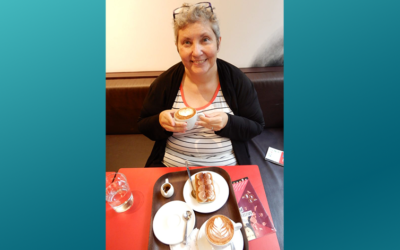PMTCT Preventing Mother To Child Transmission. This is a picture of a grandmother, her granddaughter, and granddaughters’ baby. This is the picture you should have in your mind when you think of the number one way that new cases of HIV/AIDS happen. Here is the story. The granddaughter had a baby boy (they named him Thankgod – I love that!) Then when the baby was about a week old the granddaughter came to the LifeLine Center because she wasn’t feeling well. The baby was also not feeling well. The grandmother showed me the baby and said with a beaming smile, “It’s a boy!”. We did a HIV test on the granddaughter and she is positive. It is too early to tell yet if the baby is positive and we have started the baby on Nevaripine, which reduces the baby’s risk about 50%. When the baby is six weeks old we can test and then monitor if he’s HIV positive.
Here in Nigeria many women have their baby at home, there are many reasons for this i.e. cost, knowledge, and accessiblity just to name a few. Because there is limited prenatal and medical care in developing countries, many women can be HIV positive and not know it all through their pregnancy. Delivering the baby and breastfeeding without any treatment on mother and child’s behalf results in a HIV positive child. 3.2 Million children worldwide are living with HIV because of this. People, knowledge is power! If every mother has access to pre-natal care and HIV testing and treatment, this would be prevented. These children are innocent!
How do HIV medicines prevent mother-to-child transmission of HIV?
HIV medicines reduce the amount of HIV in the body. Having less HIV in the body reduces a woman’s risk of passing HIV to her baby during pregnancy and childbirth. Having less HIV in the body also also protects the woman’s health.
Some of the HIV medicine passes from the pregnant woman to her unborn baby across the placenta (also called the afterbirth). This transfer of HIV medicine protects the baby from HIV infection, especially during a vaginal delivery when the baby may be exposed to HIV in the mother’s blood or other fluids.
Babies born to women with HIV receive HIV medicine for 6 weeks after birth. The HIV medicine reduces the risk of infection from HIV that may have entered a baby’s body during childbirth.
Many children born HIV positive and not treated with antiretroviral therapy (ART), die before their fourth birthday.
We are working very hard to continue the work here at GECHAAN. Art and Dorothy Helwig, as well as the staff here have done so much to further the knowledge and resources of this area. Clients know that when they come to then Life Line Center, they will be treated with respect and get the care they need.






Spread the word, not the disease. How sad yet necessary this information is to spread. Praying.
That is what we are going for, Kim! Thank you for praying! Love and hugs!